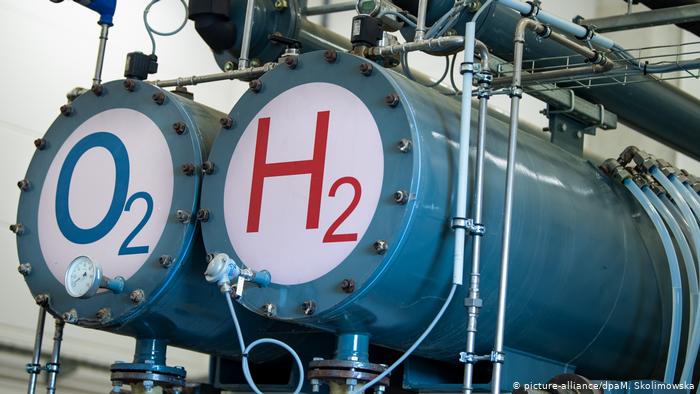Germany’s federal cabinet has adopted a National Hydrogen Strategy to enable the decarbonisation of transport and core domestic industries.
To support the strategy the cabinet has also appointed a National Hydrogen Council.
The strategy will promote the development of green hydrogen to be used in industries that include steel making and chemicals as well as for aviation and heavy transport fuels.
The plan includes making €310m available by 2023 to invest in green hydrogen research and innovation.
Federal economic affairs and energy minister Peter Altmaier said: “With the hydrogen strategy, we are setting the course for Germany to become number one in the world in hydrogen technologies.
“The time for hydrogen and the technologies required for it is ripe. We must therefore now tap and use the potential for value creation, employment and climate protection.”
Education and research federal minister Anja Karliczek added, “The long negotiations have led to a good result. Green hydrogen is the energy source of the future. We want to be at the forefront of the world with this future technology.
“We will further intensify the funding of research and innovation on green hydrogen: from generation, storage, transport and distribution to use. We will make an additional €310m available for this by 2023.”
Altmaier added: “Germany will play a pioneering role here, as we did 20 years ago with the promotion of renewable energies.”
Federal environment minister Svenja Schulze said: “Green hydrogen offers us the opportunity to advance climate protection in areas where we have not yet had any solutions, for example in the steel industry or in aviation.
“This works because the strategy is primarily aimed at promoting green hydrogen … if you say yes to hydrogen, you also have to say yes to wind energy. For green hydrogen, we need additional green electricity. That is why we must and will consistently expand renewable energy.”
Transport and digital infrastructure federal minister Andreas Scheuer said: “My ministry has been dealing with hydrogen technology for more than a decade and has invested over €700m primarily in research and development.
“With the HyLand projects, we are already in the process of building up hydrogen technology in individual regions from generation to on-site use. The next step is to do this nationwide.”
The ministry will also support the setting up of a hydrogen application and technology centre for the supply industry as well as fuel cell production in Germany.
“This offers a future perspective for the German vehicle industry and secures many jobs,” Scheuer added.
Commenting on the adoption of the strategy by the federal cabinet, Vattenfall wind business head Gunnar Groebler said: “The National Hydrogen Strategy is a milestone for more climate protection and innovation.
“A market for European green hydrogen can now develop, but this must be flanked by the further expansion of renewable energies. Only green electrons from renewables supply this green hydrogen.”
The strategy also creates alignment between the European recovery plan and the development of a national hydrogen market, said a statement from Global Alliance Powerfuels.
Alliance spokesman Andreas Kuhlmann said that because the strategy also includes hydrogen derivatives it is an “important step” towards establishing international markets for power fuels.
He said: “On the one hand, industry and transport actors are expected to make up most of the demand for renewable power fuels to contribute to climate targets and simultaneously stimulate national and international demand in the market.
“On the other hand, technology companies are expected to use their expertise to further innovate required technologies, such as electrolysers, and make them cost-competitive worldwide.
“To this extent, Germany is putting together a broad package of measures, which defines targeted guidelines for the competences in research, industry and regulation.
It also builds on existing funding and research programmes as well as guidelines and thus provides the necessary framework for the market ramp-up.”
Meanwhile the federal cabinet has adopted the National Energy and Climate Plan (NECP).
The NECP is a new planning and monitoring tool at EU level. It reports to the EU Commission the contributions made by the EU member states to the 2030 EU energy targets for increasing energy efficiency and expanding renewable energy.
The NECP aims to increase energy efficiency by reducing primary energy consumption by 30% by 2030 compared to 2008 and expand the share of renewables to 30% of gross final energy consumption in 2030.

